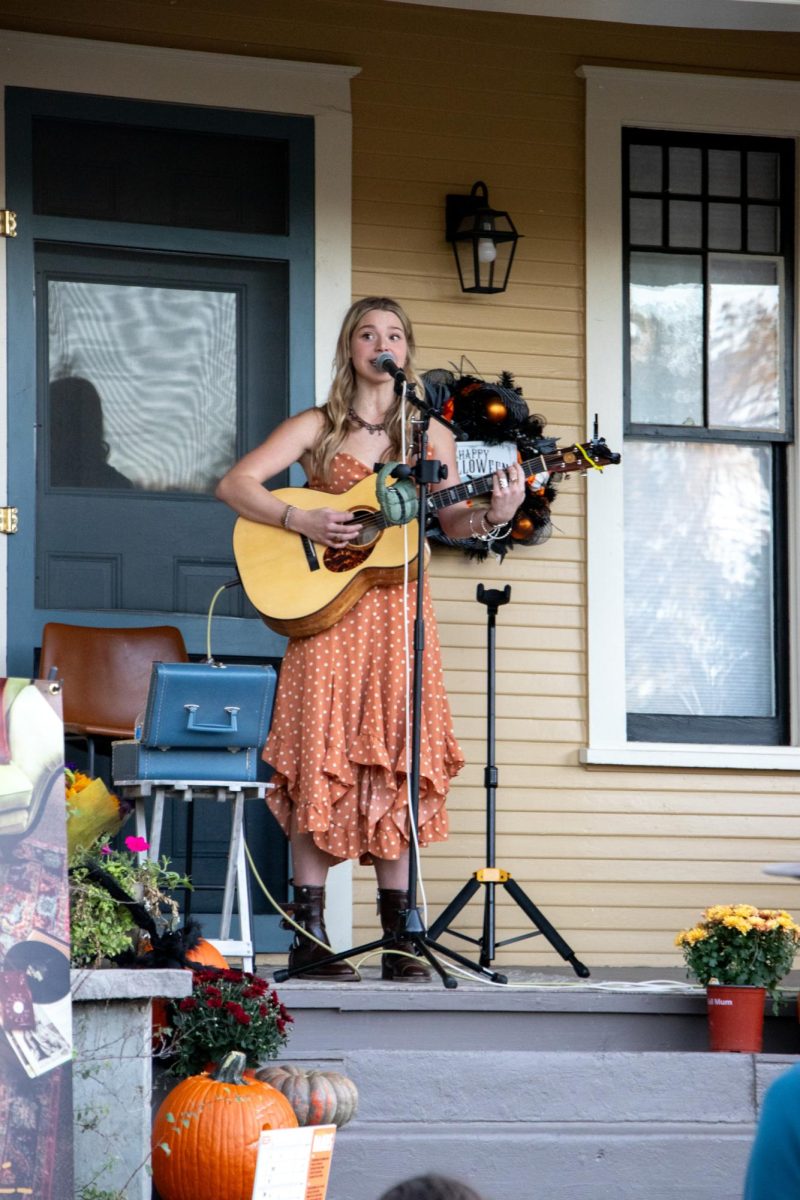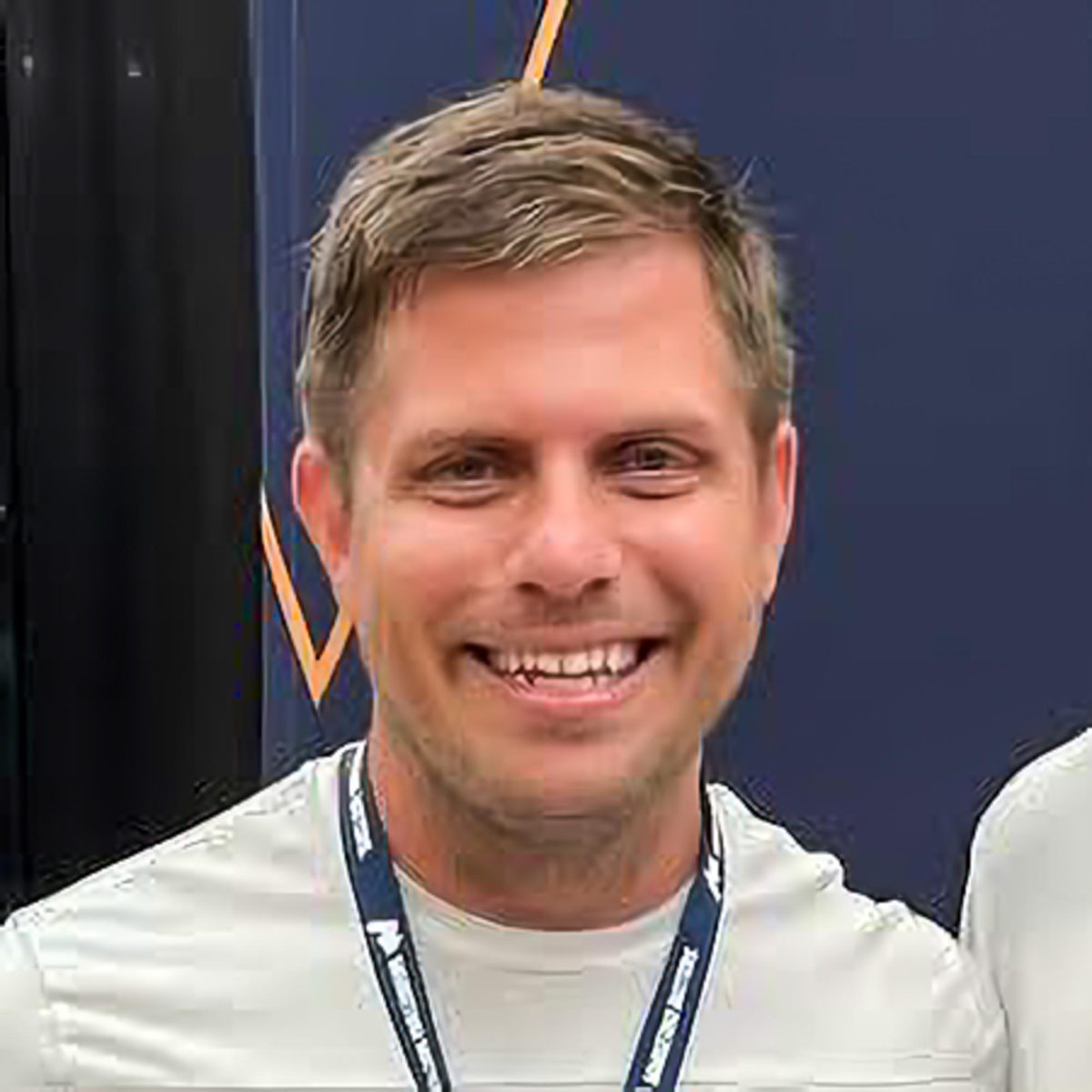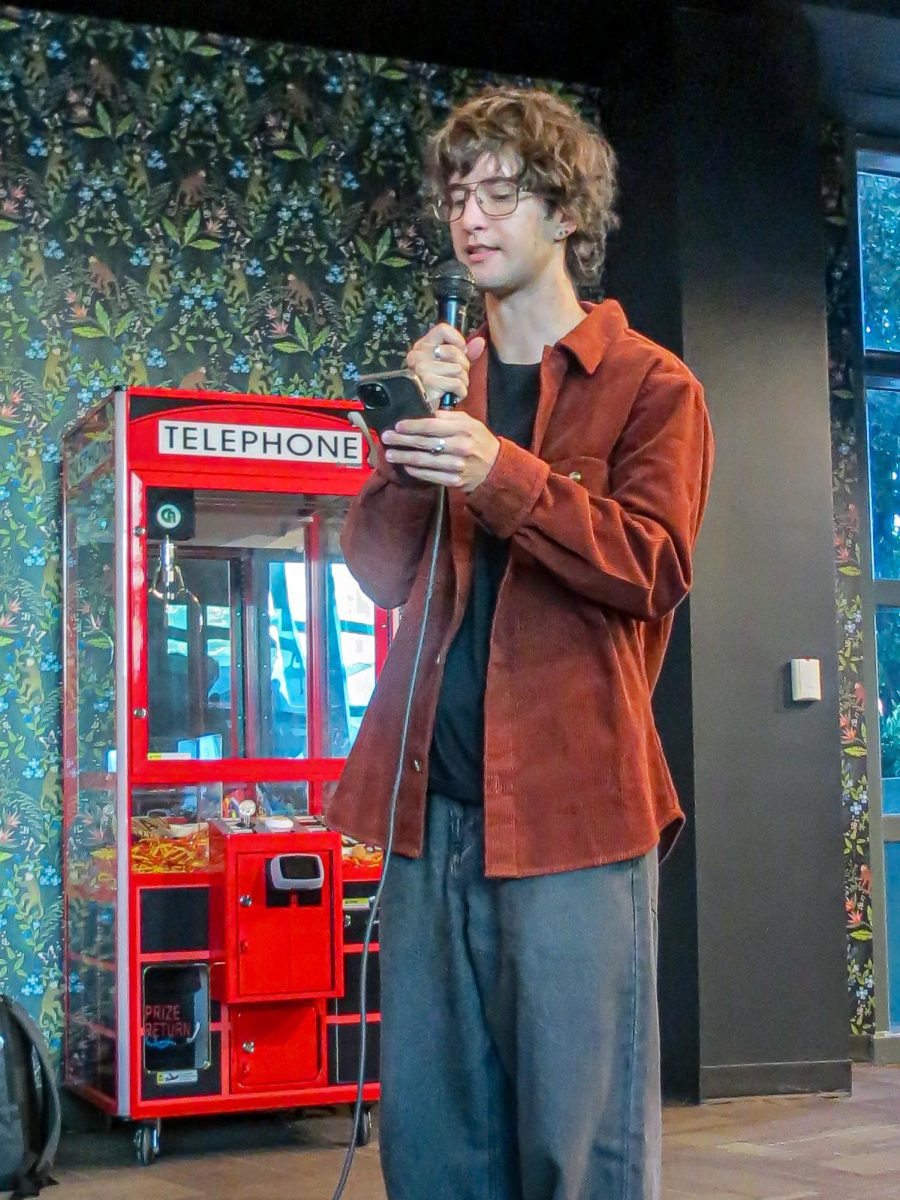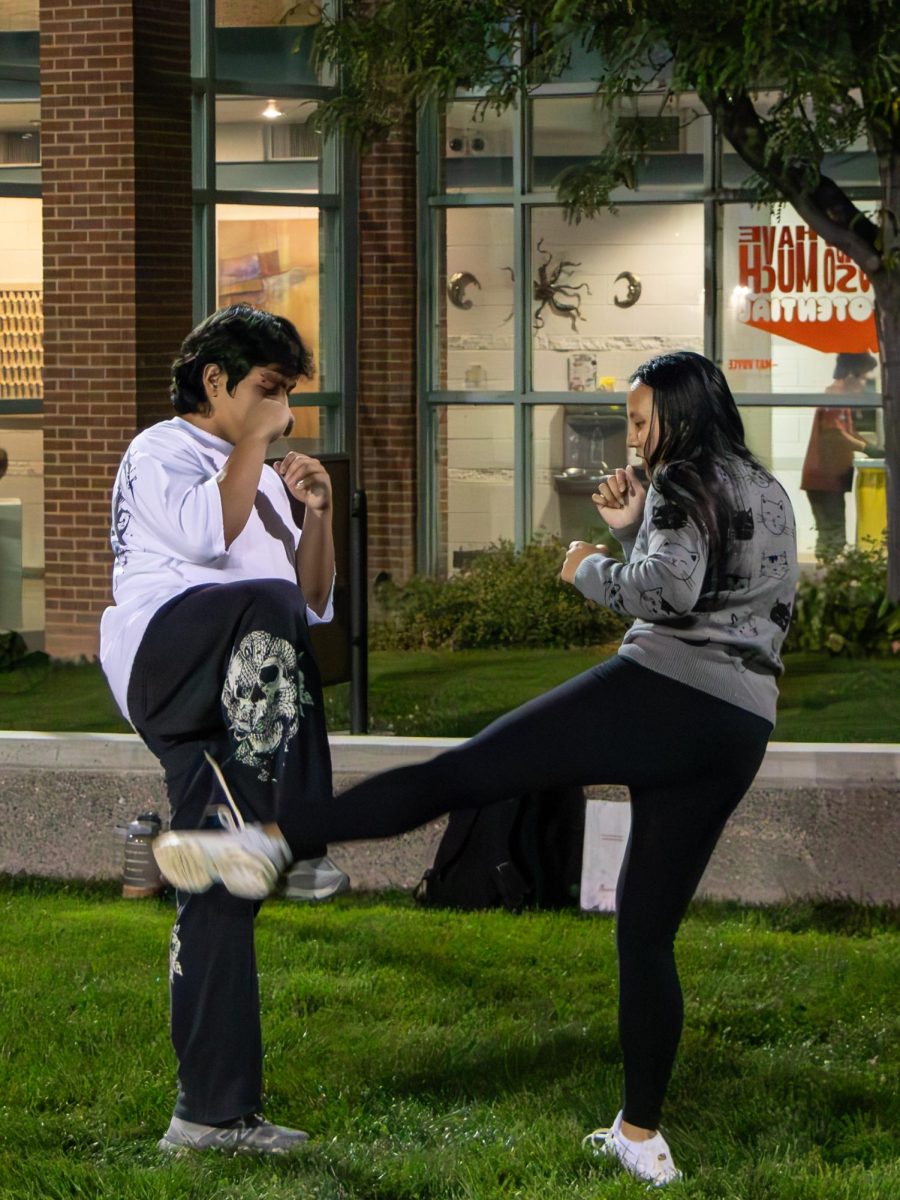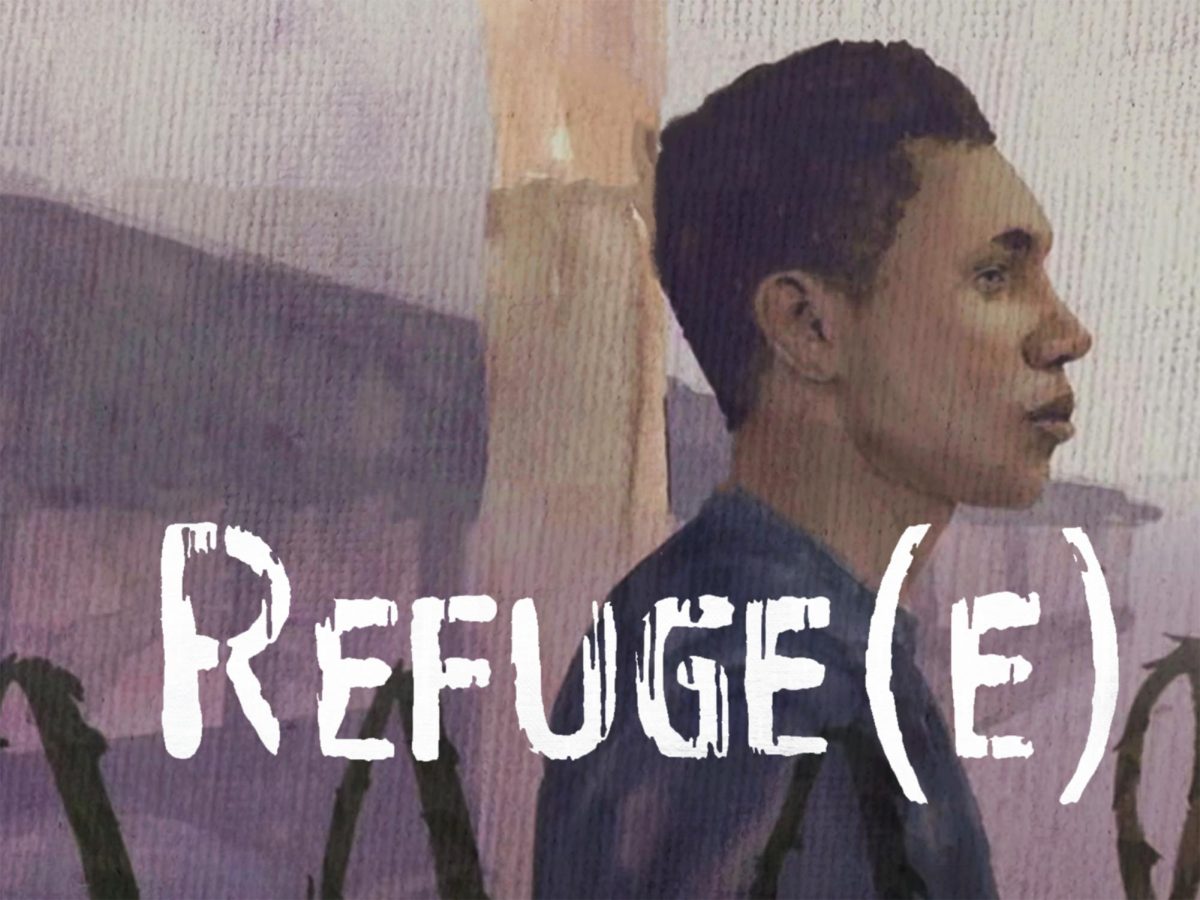Every year, elementary, middle and high schools openly discuss Adolf Hitler’s World War II genocide. The United States Department of Education give English class curriculums that involve readings of historical fiction that cover the Holocaust.
At Colorado Mesa University (CMU), remembrance of the Holocaust is unique. It looks like a field of colored flags, color-coded to represent different targeted groups during the time, as well as presentations given by CMU professors and guest speakers who impart the importance of remembrance.
Last week at CMU was the Holocaust Awareness Series: a series of events and seminars designed to respectfully cover the crucial history of the Holocaust and the idea of historicizing the genocide.
The informative letter on CMU’s website says, “It looks not only at the groups systematically targeted by the Nazi regime, but also at those who were the victims of government-sponsored atrocities such as the Armenian Genocide, the Cambodian Genocide, ethnic cleansing and genocide in Rwanda, Iraq, and the Balkan region, and the current genocides taking place in Nigeria, Myanmar, and the Sudan.”
All the events were free and open to the public.
Monday March 25, featured two events, one being a moment of silence dedication at the Field of Flags in the morning, the other being a screening of the documentary Forgiving Dr. Mengele in the evening. The film was presented by Associate Professor of History Dr. Vincent Patarino.
On Tuesday March 26, Holocaust Survivor Peter Gorog arrived at CMU to speak of his experience, sponsored by the United States Holocaust Memorial Museum. As Jews, Gorog’s family were targets.
Gorog was born as Péter Grünwald. His father died in a forced labor battalion, but Grünwald made it through alive, changed his name to Peter Gorog for fear of anti-Semitic discrimination.
Gorog earned an M.S. in electrical engineering and worked at NASA from 1980-2014, at which point he retired.
Professor of English Dr. Barry Laga presented Art Spiegelman’s graphic novel, Maus, on Wednesday evening. Maus explores the difference between historicizing the Holocaust and aestheticizing it.
That same evening, Phi Alpha Theta presented a screening of Denial, a film that explores the extent of distorted truth, particularly in the aftermath of the Holocaust.
Associate Professor of History Dr. Adam Rosenbaum gave a lecture on Thursday, March 28, about the idea of dark tourism, which is the act of civilization gathering around to visit unpleasant locations, such as cemeteries and crash sites.
The Holocaust Awareness Series concluded with Assistant Professor of Sociology Dr. Stephen Merino posing the question, “How is anti-Semitism still a thing?” He discussed the modern characteristics of anti-Semitics and the reasons they’re still out there.
All week as these events took place, the Field of Flags memorialized the targeted groups of the Holocaust. The flags sat in the grass between the Plaza and Wubben Hall, almost at the direct center of campus for all to see.




